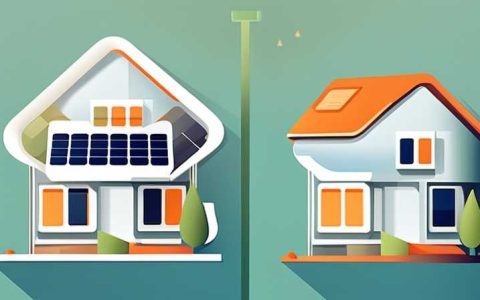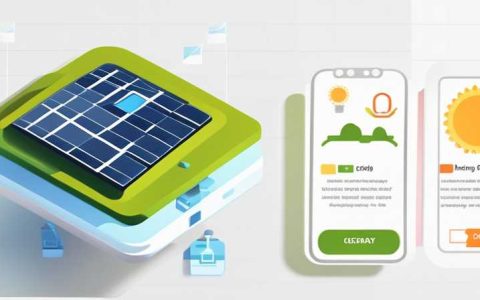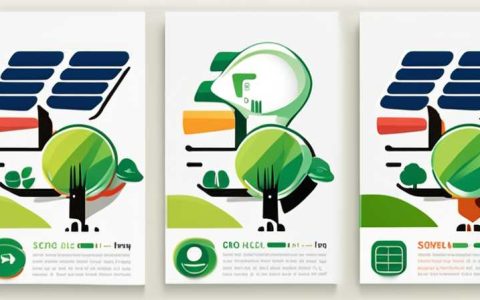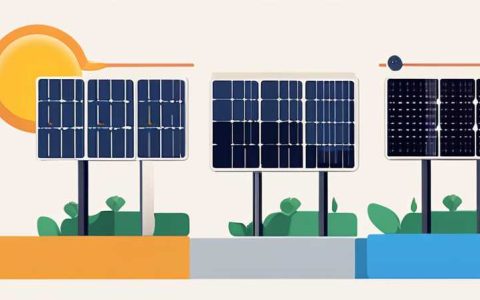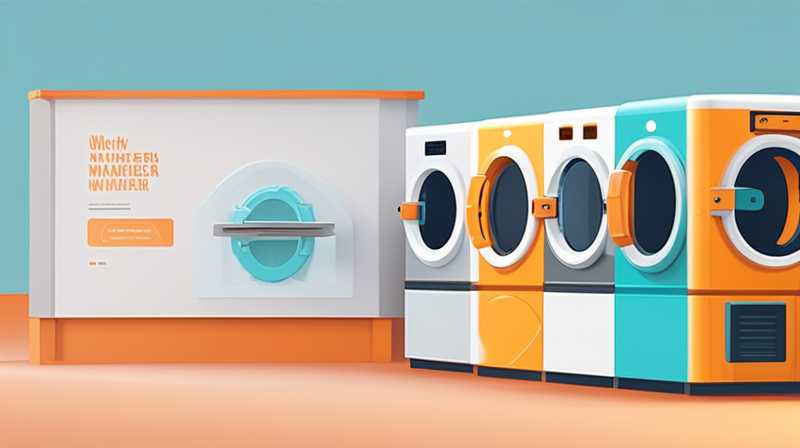
What is the job of a solar material washer?
The role of a solar material washer is pivotal in the upkeep and optimization of solar panel systems. 1. They ensure the cleanliness of solar panels, 2. They enhance energy efficiency, 3. They prolong the lifespan of solar installations, 4. They perform regular maintenance checks. Clean solar panels are essential for maximizing energy production; dirt, dust, and debris can significantly reduce light absorption, leading to diminished energy output. By applying specialized techniques and equipment, solar material washers effectively remove contaminants, ensuring that panels operate at their peak capacity. Furthermore, routine cleaning helps identify potential issues, such as cracks or electrical faults, enabling timely repairs. The commitment of solar material washers to quality service contributes directly to the sustainability and efficiency of solar energy systems.
1. IMPORTANCE OF CLEANING SOLAR PANELS
To understand the significance of a solar material washer’s role, one must first appreciate the importance of cleanliness in solar panels. Solar panels are manufactured to harness sunlight and convert it into energy. However, their efficiency is highly sensitive to external factors. Dirt, dust, and grime can accumulate on the surface, leading to a marked decline in energy production. Regular maintenance is essential not merely for aesthetic reasons but for optimal functionality.
Contaminants can reduce the energy output by shading parts of the panel, which can lead to inefficiencies. Studies indicate that unclean panels can lose up to 20% or more in efficiency simply due to accumulated dirt. This highlights the crucial need for solar material washers who are trained and equipped to ensure that these surfaces remain pristine. The importance of their job cannot be overstated, as they directly contribute to the effectiveness of solar technology.
2. TECHNIQUES AND EQUIPMENT USED
The role of a solar material washer is multifaceted and requires a deep understanding of various techniques and equipment. One common approach involves the use of deionized water which does not leave mineral residues when it evaporates. This process ensures that the panels are not only clean but remain so for extended periods.
Solar material washers also utilize specialized brushes designed to avoid scratches on the panel surface, ensuring thorough cleaning without damage. High-pressure washers may be employed in certain scenarios; however, caution must be exercised to prevent harm to fragile solar cells. Furthermore, environmentally friendly cleaning agents might be utilized to enhance the results without harming the environment. These methods reinforce the relevance of expert knowledge and skill in maintaining solar panels effectively.
3. REGULAR MAINTENANCE CHECKS
Another essential aspect of the job pertains to conducting regular maintenance checks alongside cleaning duties. Solar material washers often go beyond cleaning to inspect and assess the overall condition of the panels. This proactive approach helps identify potential problems before they escalate, protecting investments in solar technology.
During these checks, washers typically look for issues such as cracks in the solar cells, corrosion of electrical connections, or damage to the mounting structure. Observing such irregularities allows for the timely scheduling of repairs, preventing downtime that could result in financial loss or decreased energy output. Their expertise in identifying such concerns underscores the importance of having knowledgeable professionals oversee this aspect of solar maintenance.
4. TRAINING AND CERTIFICATIONS
The profession of a solar material washer requires specialized training and potentially certifications. Understanding the operational workings of solar panels, as well as the necessary cleaning techniques, is crucial. Many service providers offer training programs that encompass technical knowledge about solar technologies and industry best practices for effective cleaning and inspection.
Certifications from reputable organizations lend credibility to the washers’ skill sets, establishing trust between service providers and clients. Furthermore, knowledge of safety protocols is essential; working at heights or managing electrical components necessitates certain precautions. Well-trained professionals contribute not only to the effectiveness of maintenance but also ensure safety for themselves and others involved in the maintenance process.
5. ECONOMIC AND ENVIRONMENTAL IMPACT
The contributions of solar material washers extend beyond the immediate functional advantages. Economically, their role is integral to the overall success of solar energy projects. Cleaner panels yield higher energy outputs, leading to increased returns on investment for solar installation owners.
Environmentally, maintaining clean solar panels maximizes the efficient use of renewable energy. Enhancing the effectiveness of solar systems contributes to a lower reliance on fossil fuels, supporting broader sustainability goals. Additionally, solar material washers often adopt eco-friendly practices, using biodegradable detergents and minimal water consumption to mitigate their environmental footprint. The fusion of economic viability and environmental stewardship positions solar material washers in a crucial intersection of energy innovation.
6. SAFETY PROTOCOLS AND STANDARDS
The safety of solar material washers during the execution of their duties is a significant concern. Working in various environments often poses risks, particularly when dealing with heights or heavy equipment. Hence, adherence to safety protocols is fundamental.
Such protocols include the use of personal protective equipment (PPE) such as gloves, safety goggles, and harnesses, especially when accessing rooftop installations. Training programs often emphasize the importance of recognizing potential hazards and managing risks effectively. These measures not only safeguard the washers themselves but also ensure that they complete their work without posing dangers to nearby workers or residents. The commitment to safety reflects the professionalism intrinsic to the solar maintenance industry.
FREQUENTLY ASKED QUESTIONS
WHAT ARE THE MAIN CHALLENGES FACED BY SOLAR MATERIAL WASHERS?
One significant challenge encountered by solar material washers relates to the varying environmental conditions in which they operate. Weather elements such as rain, dust storms, and pollutants can impact the frequency and effectiveness of cleaning schedules. Additionally, some regions may face limitations in water supply, posing logistical challenges during the cleaning process.
Furthermore, the need to adapt cleaning methods based on various panel technologies, such as mono-crystalline versus polycrystalline, also adds to their responsibilities. Each type requires specific procedures to ensure that the cleaning enhances efficiency rather than causing harm. The potential for physical hazards while working on rooftops or elevated surfaces also emphasizes the need for rigorous safety protocols, making it crucial for washers to remain vigilant and take the necessary precautions consistently. Maintenance of expertise is ongoing as technology progresses, demanding that washers continuously update their skills to tackle these challenges effectively.
HOW OFTEN SHOULD SOLAR PANELS BE CLEANED?
Cleaning frequencies for solar panels can vary based on several factors, including geographic location, weather conditions, and the overall environmental context. In areas with frequent rainfall, natural cleansing may enable panels to remain relatively clean, allowing for less frequent manual cleaning. Conversely, locations prone to dust, sand, or pollution may necessitate more regular cleaning to maintain efficiency.
Typically, a maintenance schedule might recommend cleaning every six months, but this can fluctuate based on local conditions. For example, in arid regions or places with heavy industrial activity, a quarterly cleaning may be beneficial. Service providers often conduct assessments to tailor cleaning schedules to the unique needs of their specific installations, ensuring optimal energy production. The prioritization of efficiency plays a significant role in determining how frequently maintenance occurs, advocating for customized solutions to meet the requirements of solar systems effectively.
WHAT QUALIFICATIONS ARE REQUIRED TO BECOME A SOLAR MATERIAL WASHER?
The journey to becoming a competent solar material washer usually involves a blend of education, training, and practical experience. While formal education is not necessarily a requirement, basic knowledge of electrical systems and renewable energy principles can significantly enhance a washer’s proficiency. Many employers look favorably on candidates with experience in general maintenance or cleaning roles within the energy sector.
Training programs, which may consist of both theoretical and hands-on learning, are beneficial for those starting in this field. They cover essential topics such as panel technologies, safety measures, and procedures specific to solar cleaning. Certification from recognized organizations can also fortify a candidate’s qualifications, increasing job prospects and promoting trust among clients. Ultimately, the combination of knowledge, skill, and hands-on experience positions individuals for success in this evolving industry.
In summary, the role of a solar material washer is crucial for maintaining the efficiency and longevity of solar panels. Their attention to cleanliness not only maximizes energy output but also minimizes potential future issues, thereby reinforcing the viability of solar technology as a sustainable energy solution. The expertise and dedication of solar material washers are essential to the broader narrative of renewable energy adoption and efficiency advancement, fostering trust in solar systems worldwide. Their work ultimately contributes to a greener planet, highlighting the importance of environmental responsibility in today’s energy landscape. As they strive to ensure optimal performance through regular cleaning and maintenance, the industry’s growth and sustainability hinge significantly on their contributions.
Original article by NenPower, If reposted, please credit the source: https://nenpower.com/blog/what-is-the-job-of-a-solar-material-washer/


